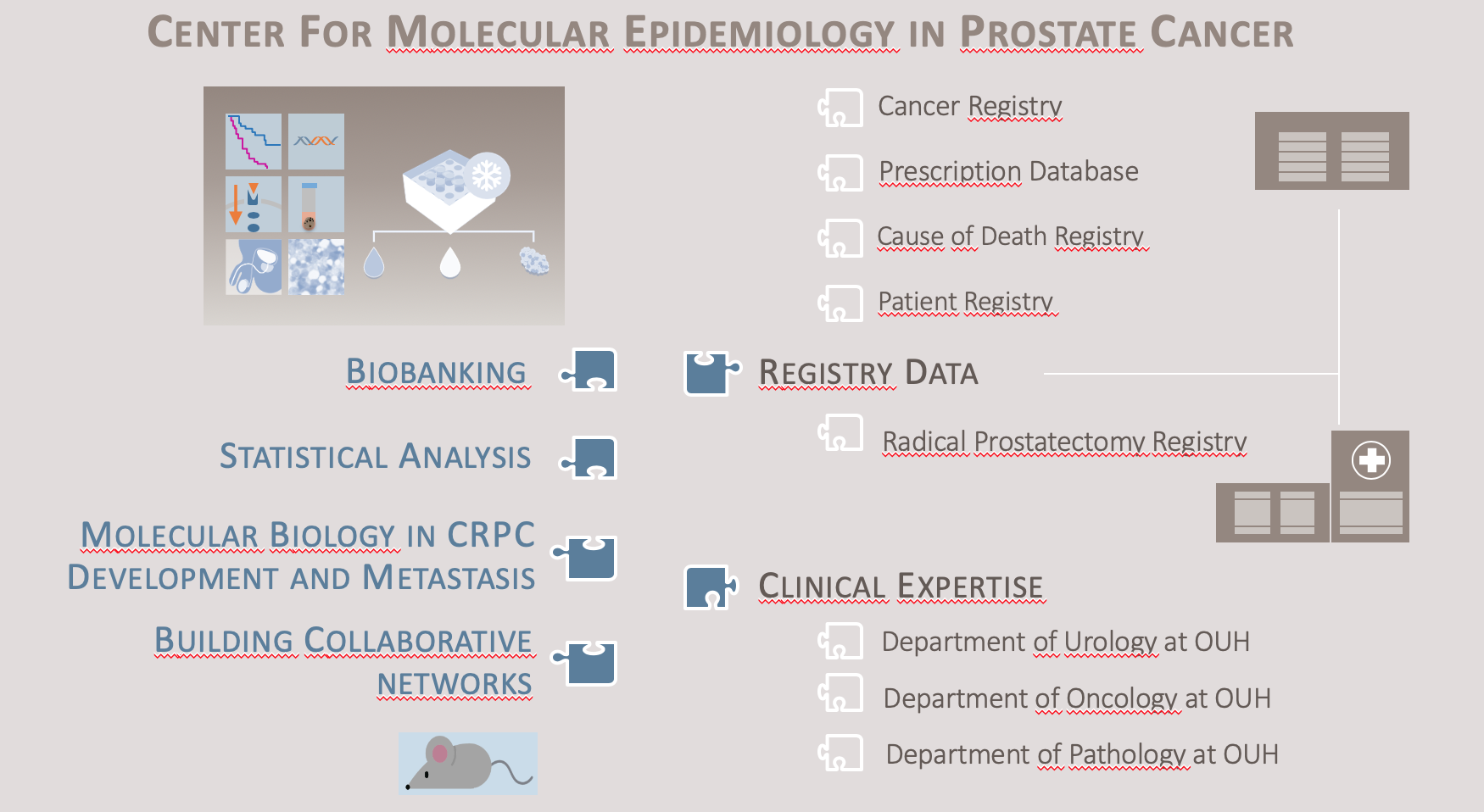Areas of expertise
Our project group was established at Department of Urology at Aker University Hospital in 2001. In collaboration with Department of Urology and Department of Pathology, we established the Prostate Biobank in 2004. The Prostate Biobank and the corresponding clinical research register include tissue and clinical follow-up data from more than 3000 men radically operated for prostate cancer.

Through the Prostate Biobank we have established strong collaborations with the clinic. The translational aspect of our research has been further strengthened though our involvement in many Movember initiated projects: GAP1 serum, GAP1 urine, GAP1 Unique TMA and being the lead site for the Movember Team Award in Norway that was granted to the Norwegian Prostate Cancer Biomarker Network in 2013. Lastly, we have been strongly involved in starting-up the IRONMAN project in Norway that is led by Department of Oncology at Oslo University Hospital. IRONMAN is a registry study for men with advanced prostate cancer.
In the field of cancer epidemiology, we have ongoing projects on BBs and progression inmelanoma, breast-, colon-, lung-, ovary- and prostate cancer. In these projects, we have excellent collaborators, including Dr. Tom Grotmol, Dr. Edoardo Botteri and Dr. Trude Eid Robsham (The Norwegian Cancer Registry) and with Dr. Henrik Toft Sørensen (Aarhus University).
Our project group is part of “The Metastasis Biology and Experimental Therapeutics Group” headed by Professor Gunhild Mælandsmo that has a long track record in studies on metastasis and therapy resistance. Furthermore, we collaborate with Dr. Malin Thulin Hagberg, Dr. Matti Poutanen, Dr. Wyske van Weerden and Dr. Yuzhuo Wang who have access to models used to address questions related to development of metastatic and neuroendocrine prostate cancer. Of special interest is to determine how beta-blockers can be used to improve prostate cancer care.
In summary, our project group use registry data, clinical material and follow-up data as well as in vivo and ex vivo model systems to identify molecular markers that can be used to guide treatment of advanced prostate cancer and to identify new drugs that can improve therapy response.
